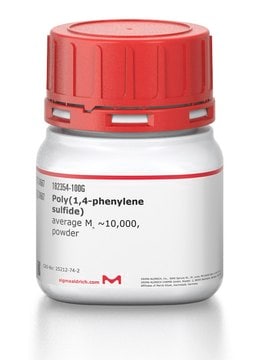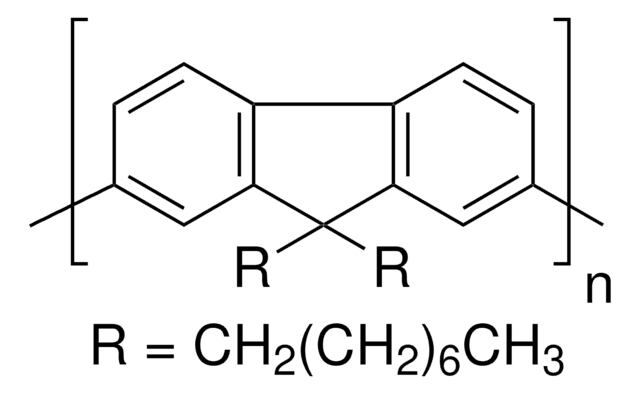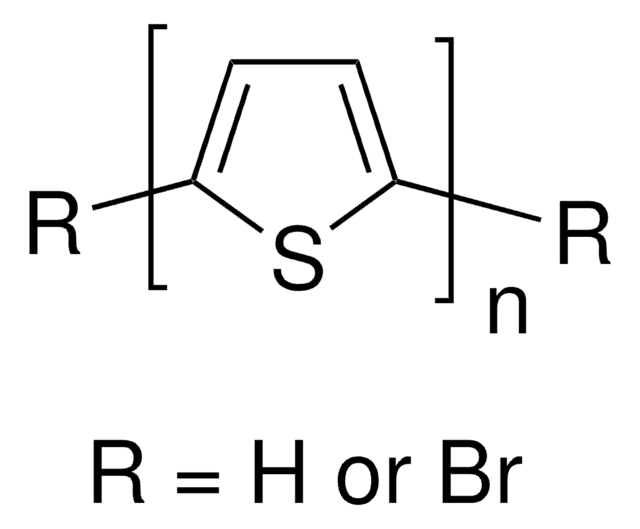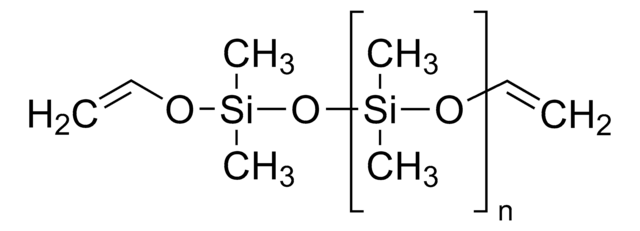937274
Poly(propylene sulfide)
average Mw 15000
Autenticatiper visualizzare i prezzi riservati alla tua organizzazione & contrattuali
About This Item
Prodotti consigliati
agenzia
suitable for controlled release
Livello qualitativo
Stato
viscous liquid
PM
average Mw 15000
Colore
colorless
applicazioni
advanced drug delivery (tissue engineering, medical devices)
Temperatura di conservazione
2-8°C
Categorie correlate
Descrizione generale
Poly(propylene sulfide) (PPS) is a thermoplastic polymer that has shown potential for use in various biomedical applications due to its biocompatibility, biodegradability, and tunable mechanical and chemical properties.
Applicazioni
One promising application of PPS is in drug delivery. PPS nanoparticles can be synthesized and loaded with drugs, providing sustained release and targeted delivery to specific tissues or cells. PPS also has good stability in biological environments, which is important for maintaining drug efficacy during storage and delivery.
PPS has also been explored as a material for tissue engineering. Its biocompatibility and ability to be tailored for specific mechanical and chemical properties make it a potentially useful scaffold material for various tissue types, including bone and cartilage. PPS has also been shown to support cell attachment and growth in vitro.
In addition to drug delivery and tissue engineering, PPS has also been investigated for use in medical devices such as catheters and sutures. Its chemical resistance and low toxicity make it a potential alternative to traditional materials like silicone and nylon. Overall, PPS has shown promise for various biomedical applications, and ongoing research is exploring its potential in areas such as wound healing, cancer therapy, and regenerative medicine.
PPS has also been explored as a material for tissue engineering. Its biocompatibility and ability to be tailored for specific mechanical and chemical properties make it a potentially useful scaffold material for various tissue types, including bone and cartilage. PPS has also been shown to support cell attachment and growth in vitro.
In addition to drug delivery and tissue engineering, PPS has also been investigated for use in medical devices such as catheters and sutures. Its chemical resistance and low toxicity make it a potential alternative to traditional materials like silicone and nylon. Overall, PPS has shown promise for various biomedical applications, and ongoing research is exploring its potential in areas such as wound healing, cancer therapy, and regenerative medicine.
Caratteristiche e vantaggi
- Biocompatible
- Biodegradable
- Tunable mechanical and chemical properties
- Ideal for sustained release and targeted delivery
- Chemically resisitant and low toxicity
Codice della classe di stoccaggio
10 - Combustible liquids
Classe di pericolosità dell'acqua (WGK)
WGK 3
Punto d’infiammabilità (°F)
Not applicable
Punto d’infiammabilità (°C)
Not applicable
Scegli una delle versioni più recenti:
Certificati d'analisi (COA)
Lot/Batch Number
It looks like we've run into a problem, but you can still download Certificates of Analysis from our Documenti section.
Se ti serve aiuto, non esitare a contattarci Servizio Clienti
Possiedi già questo prodotto?
I documenti relativi ai prodotti acquistati recentemente sono disponibili nell’Archivio dei documenti.
Il team dei nostri ricercatori vanta grande esperienza in tutte le aree della ricerca quali Life Science, scienza dei materiali, sintesi chimica, cromatografia, discipline analitiche, ecc..
Contatta l'Assistenza Tecnica.







